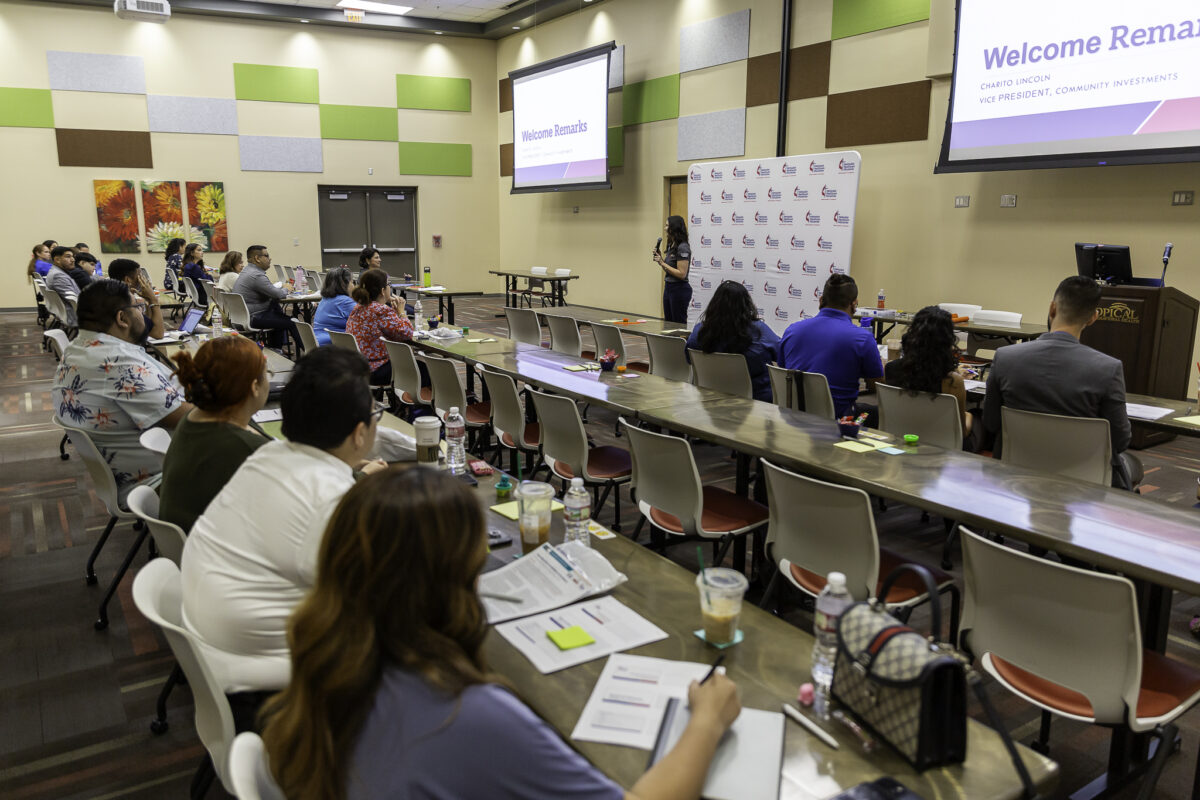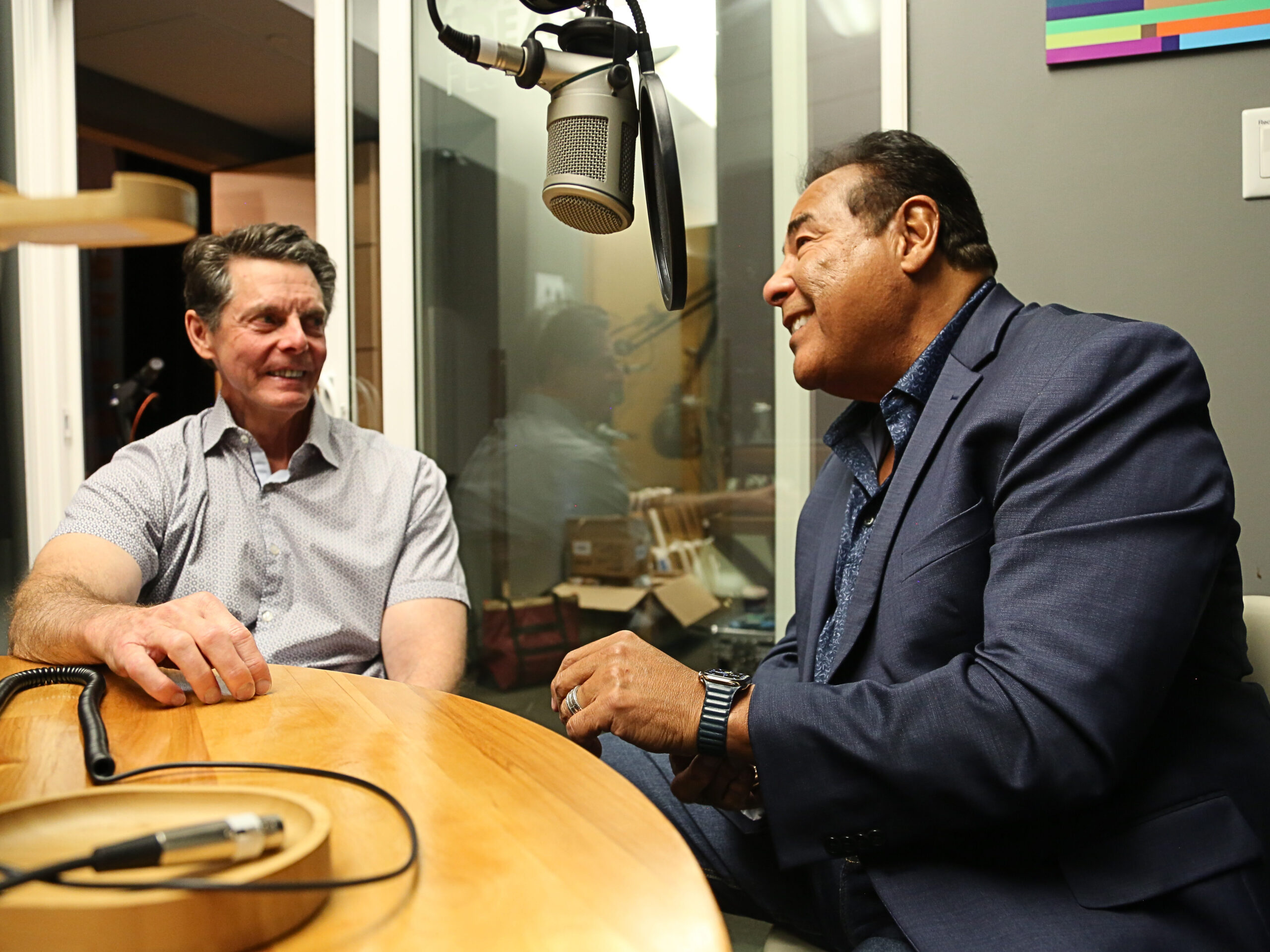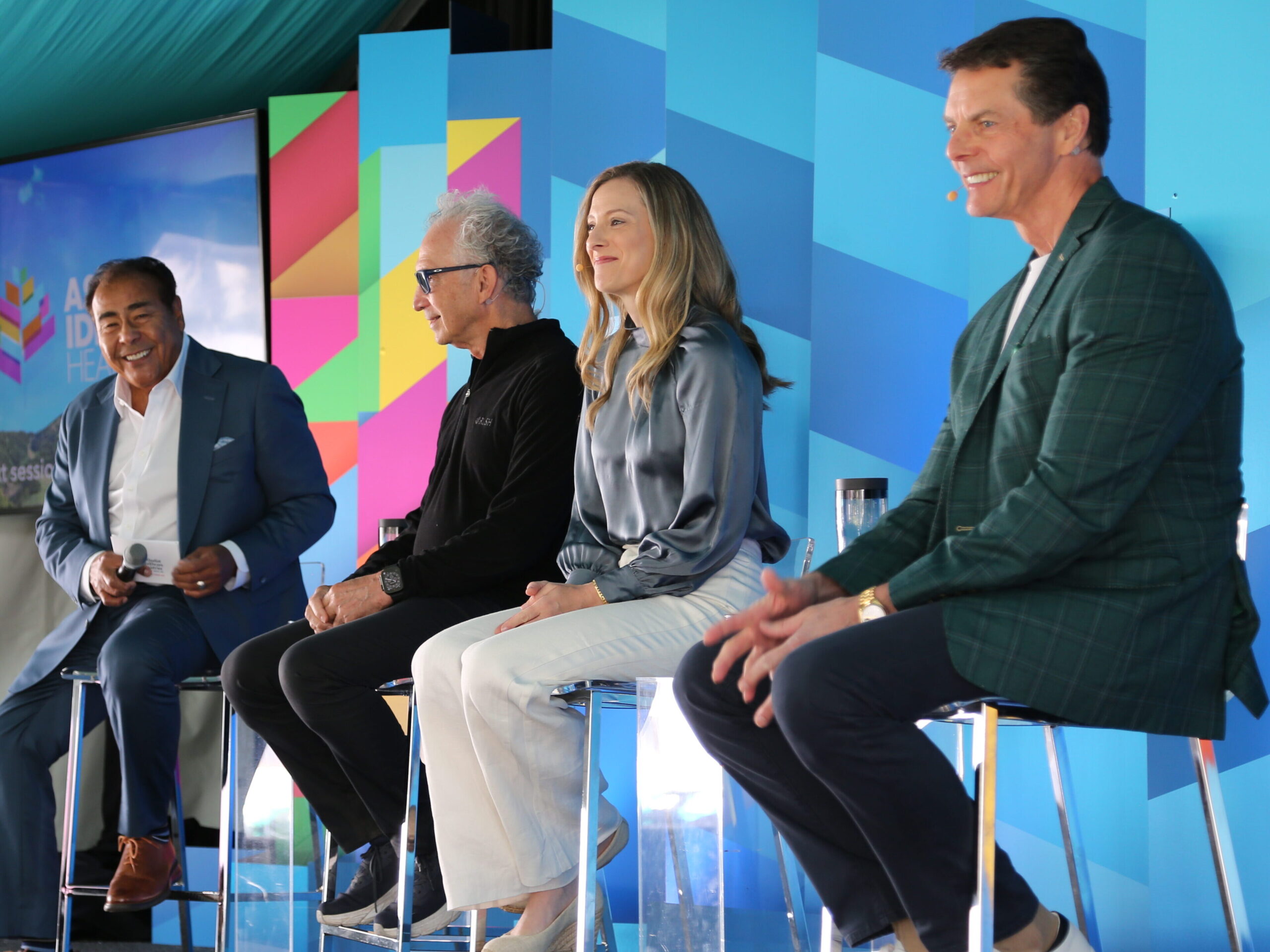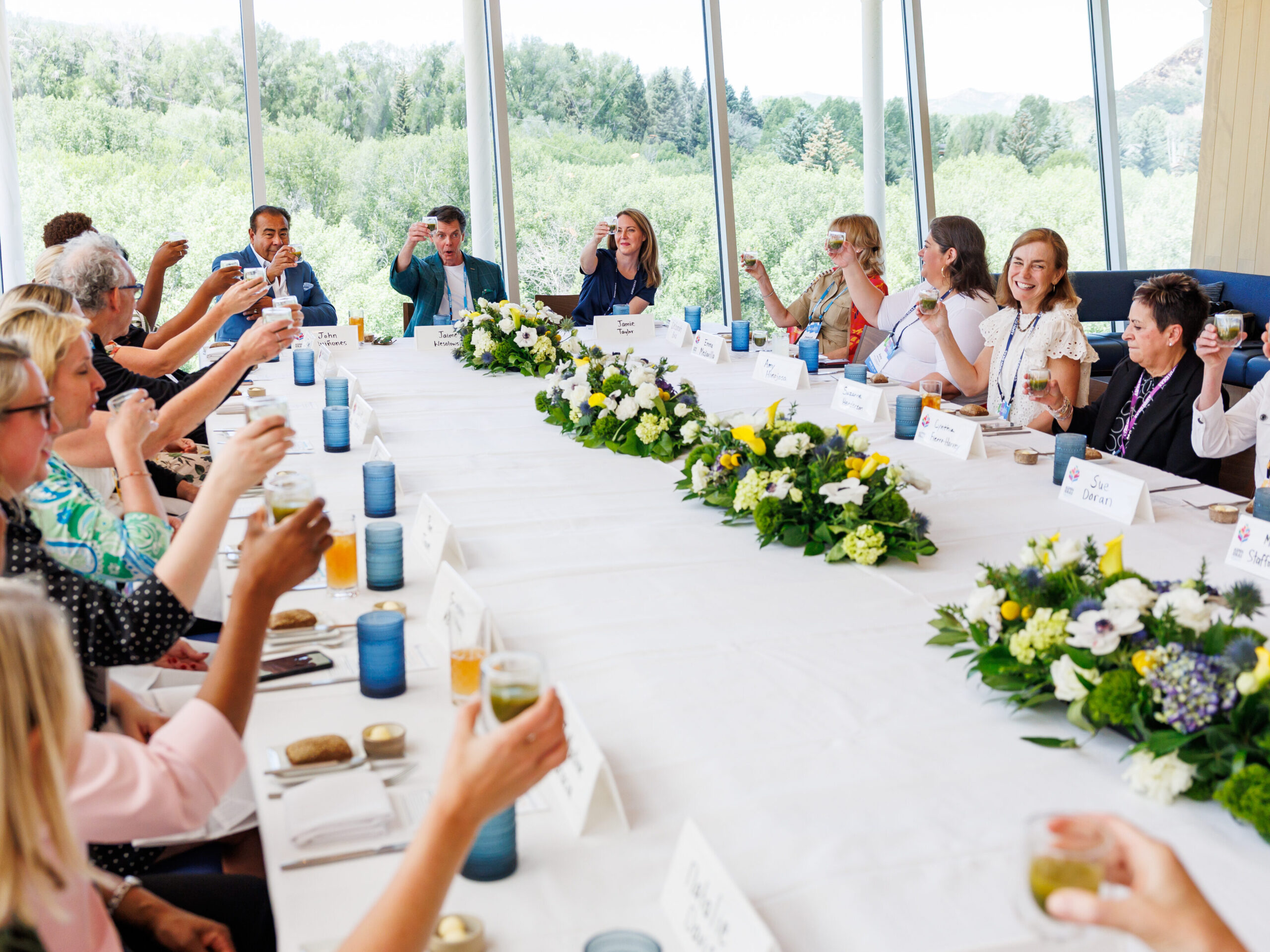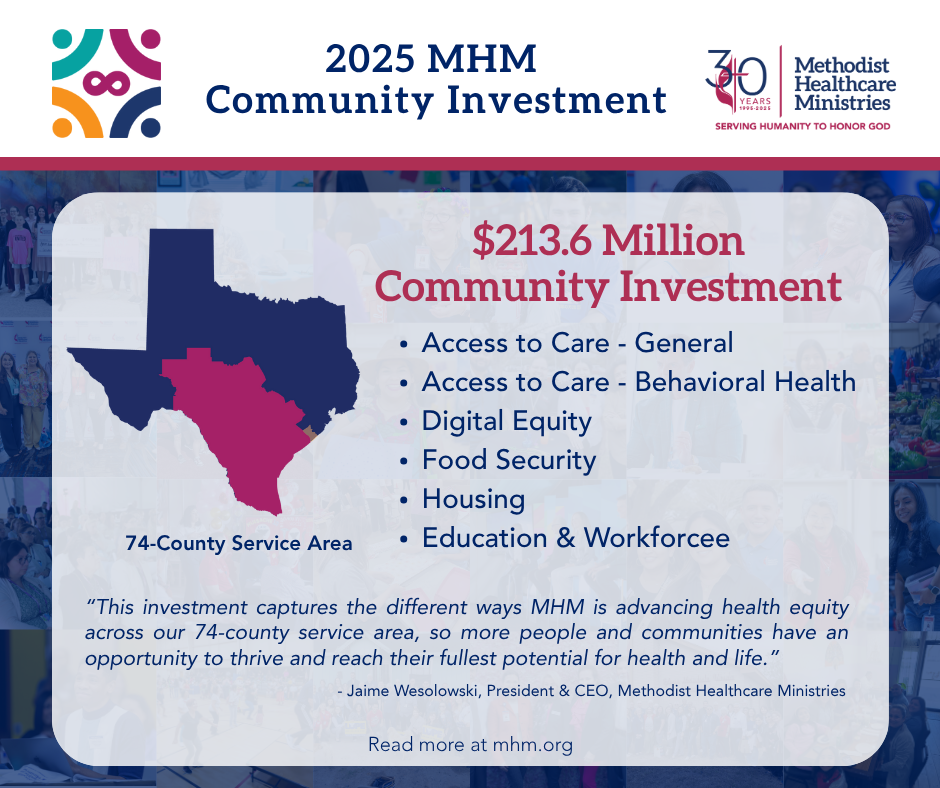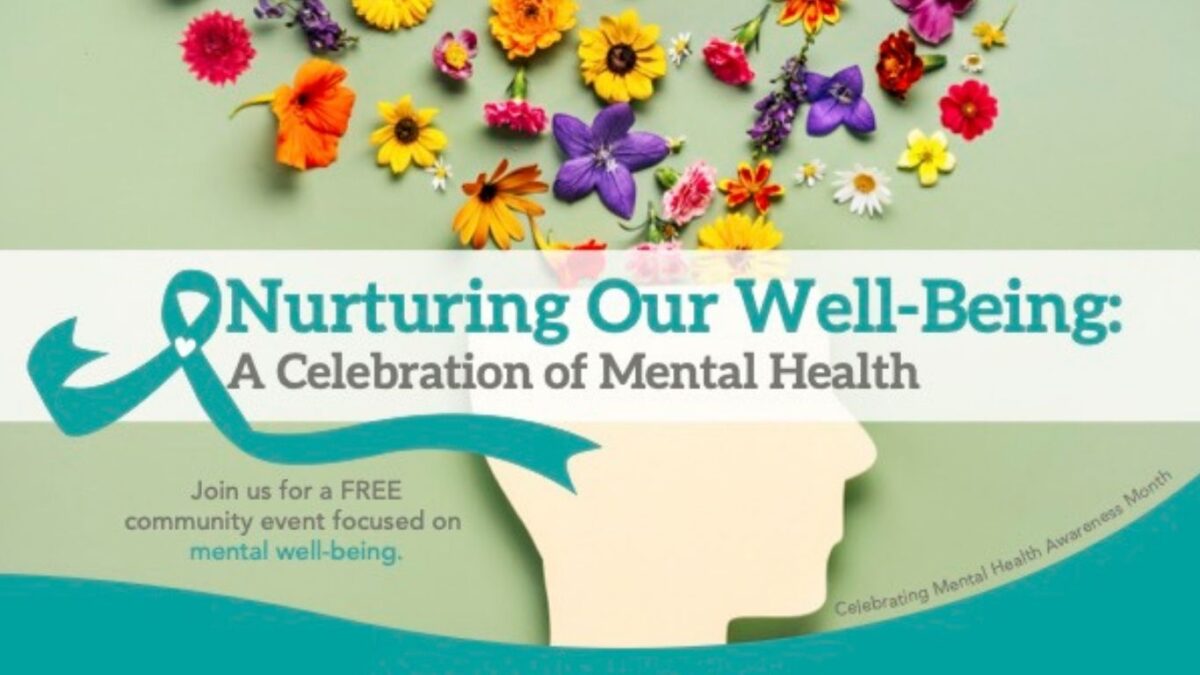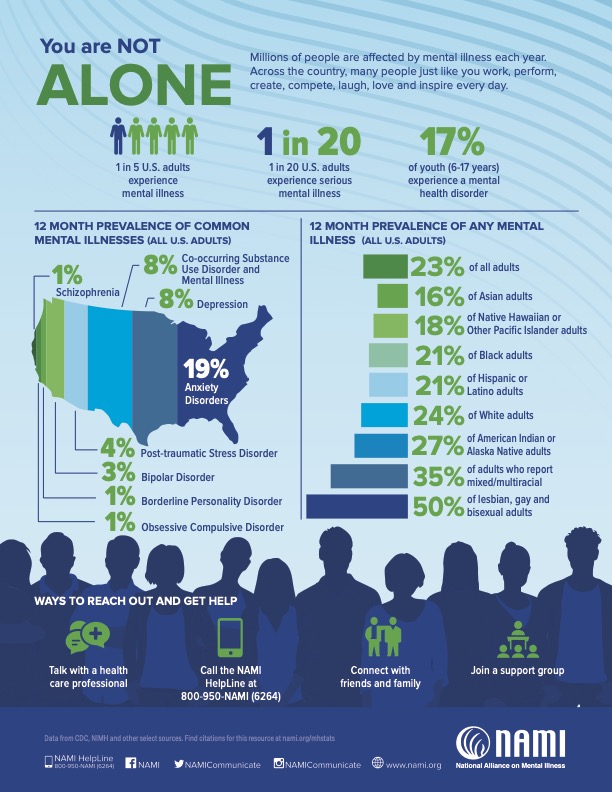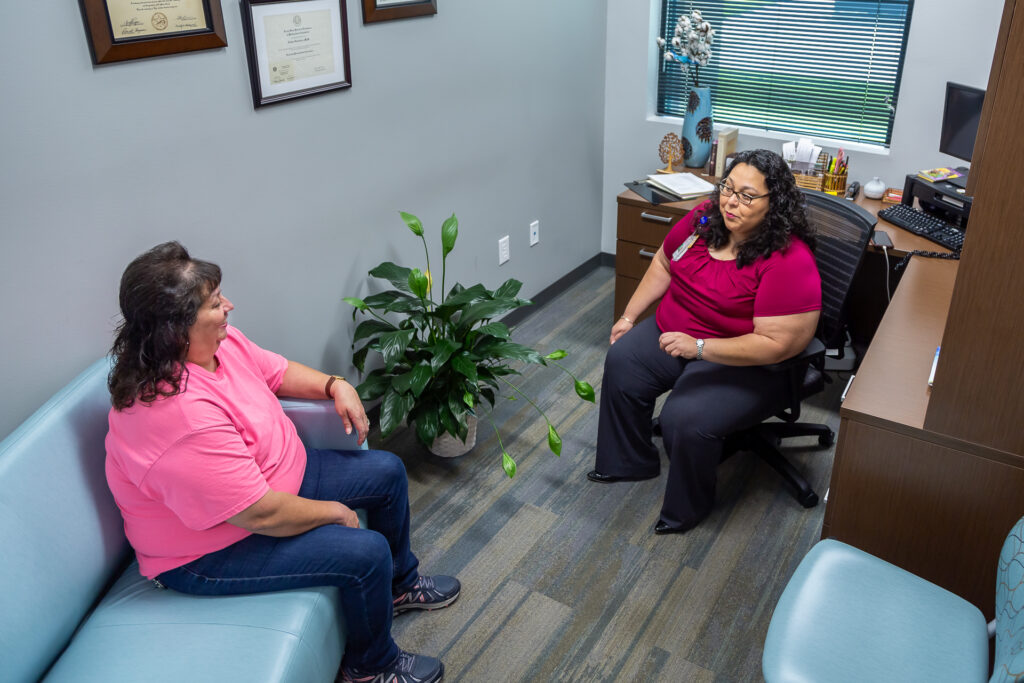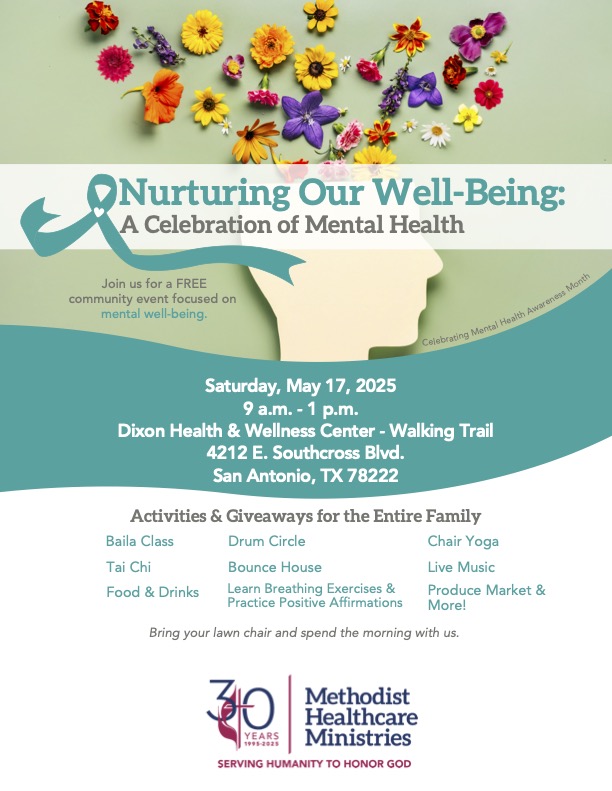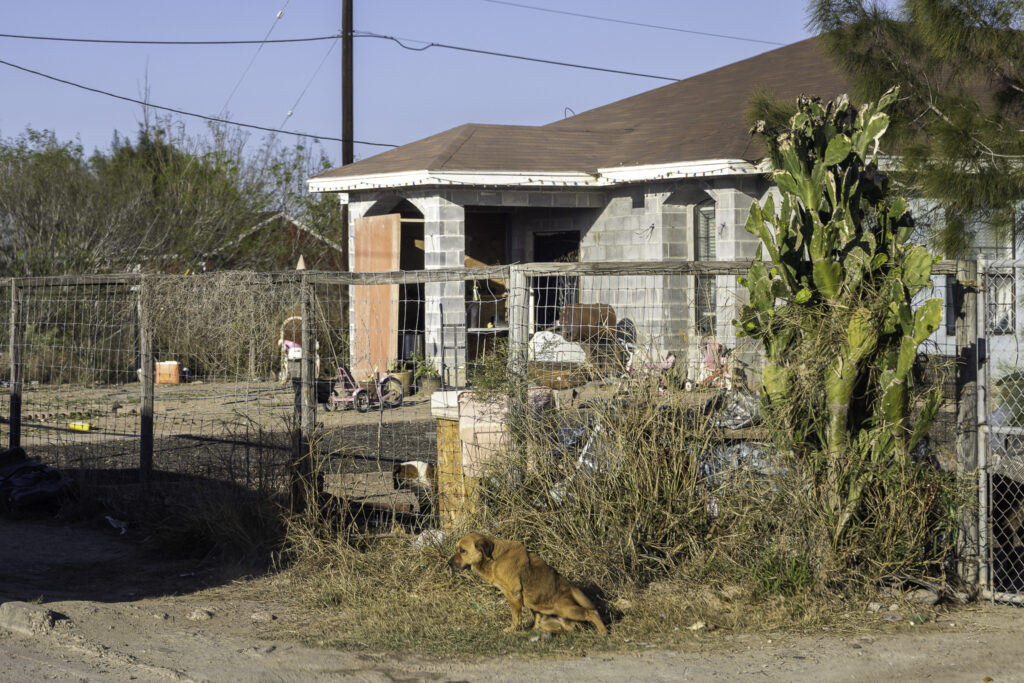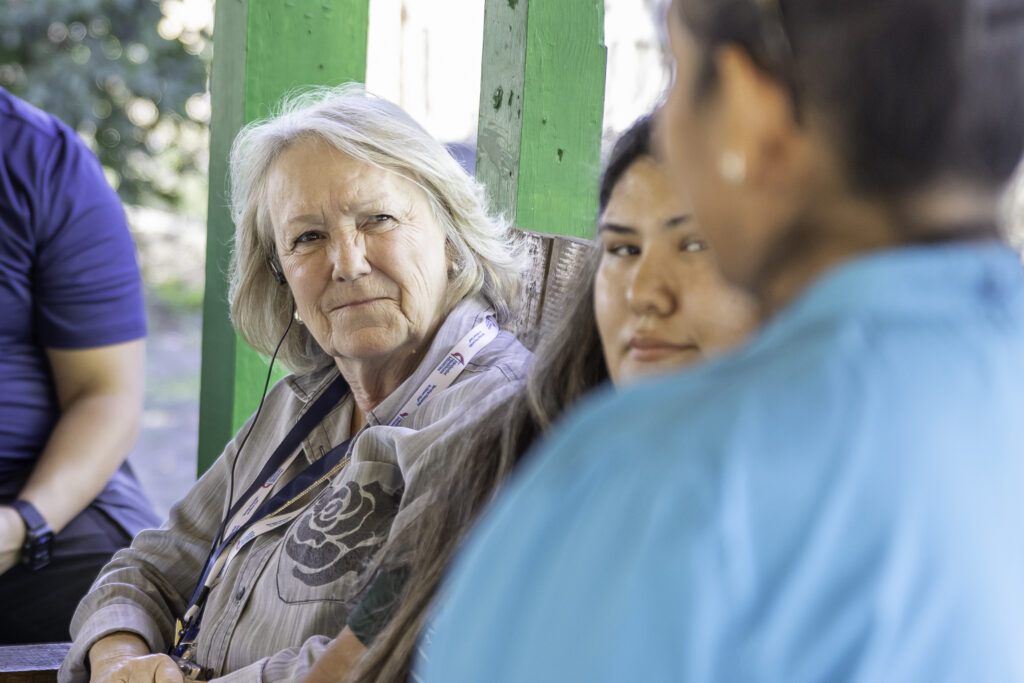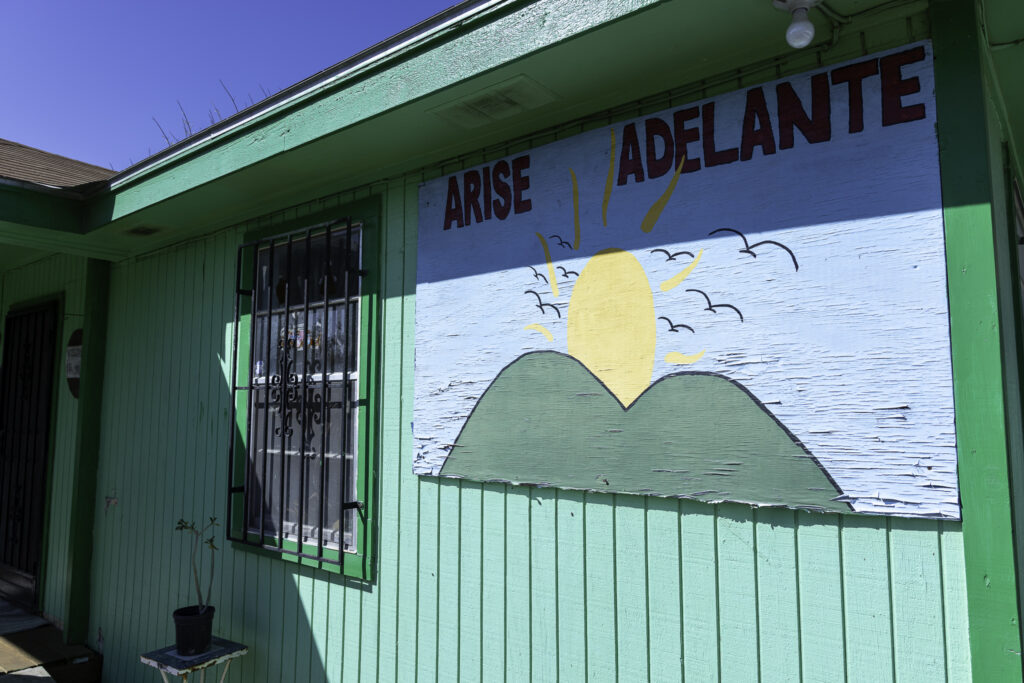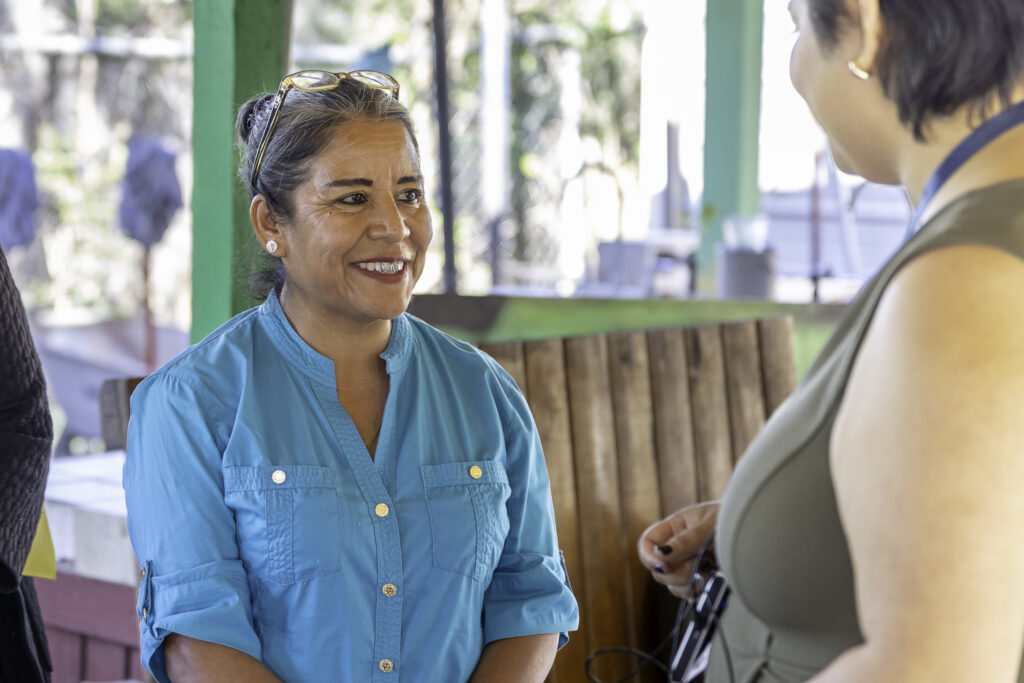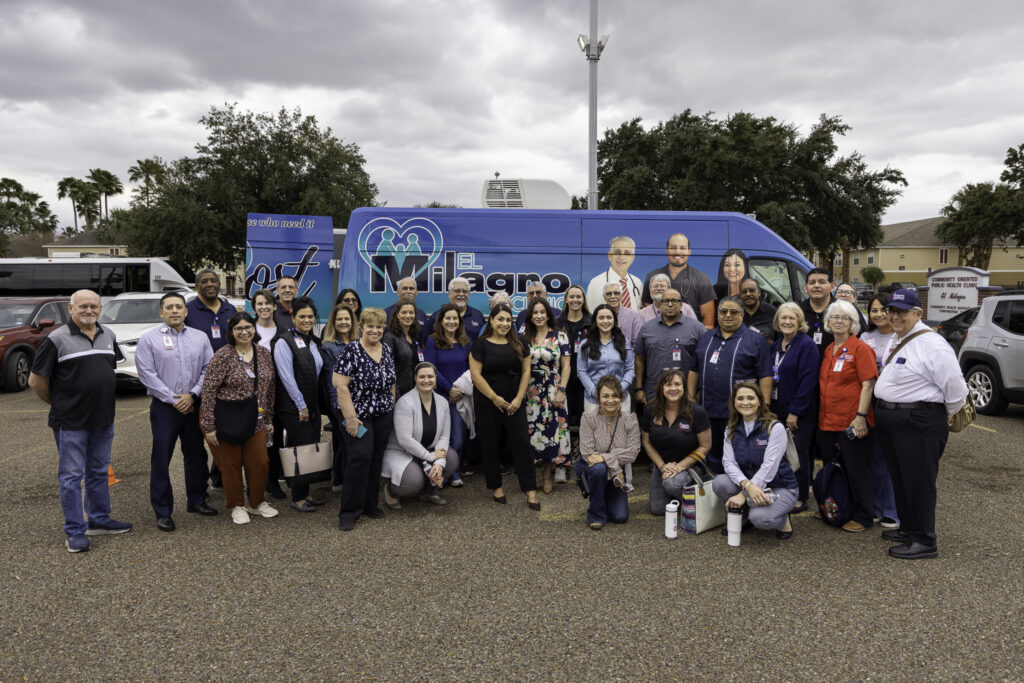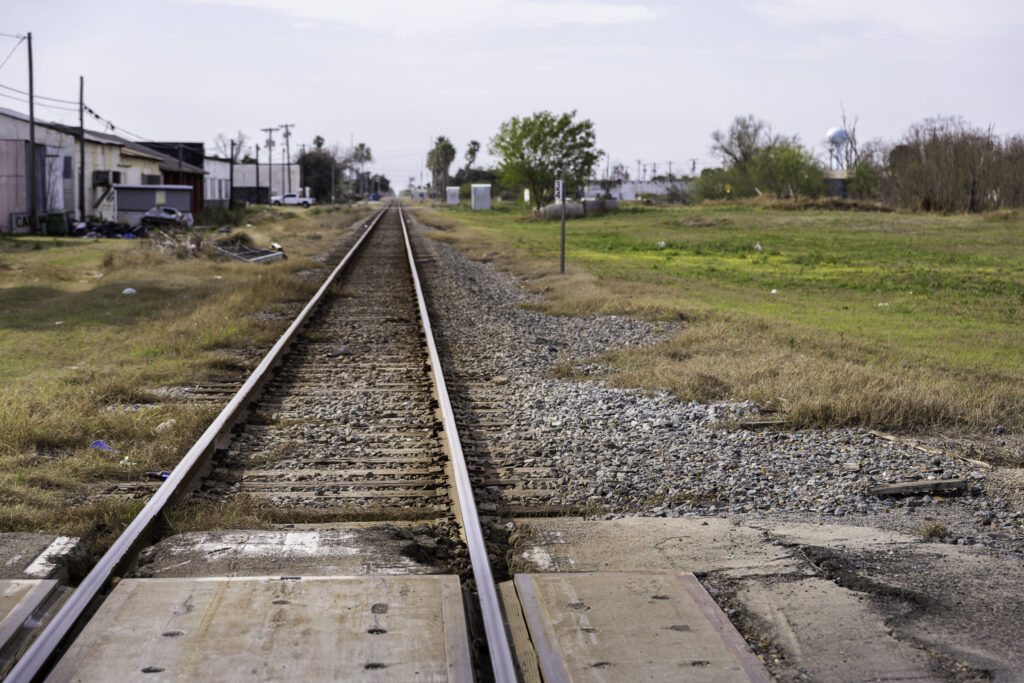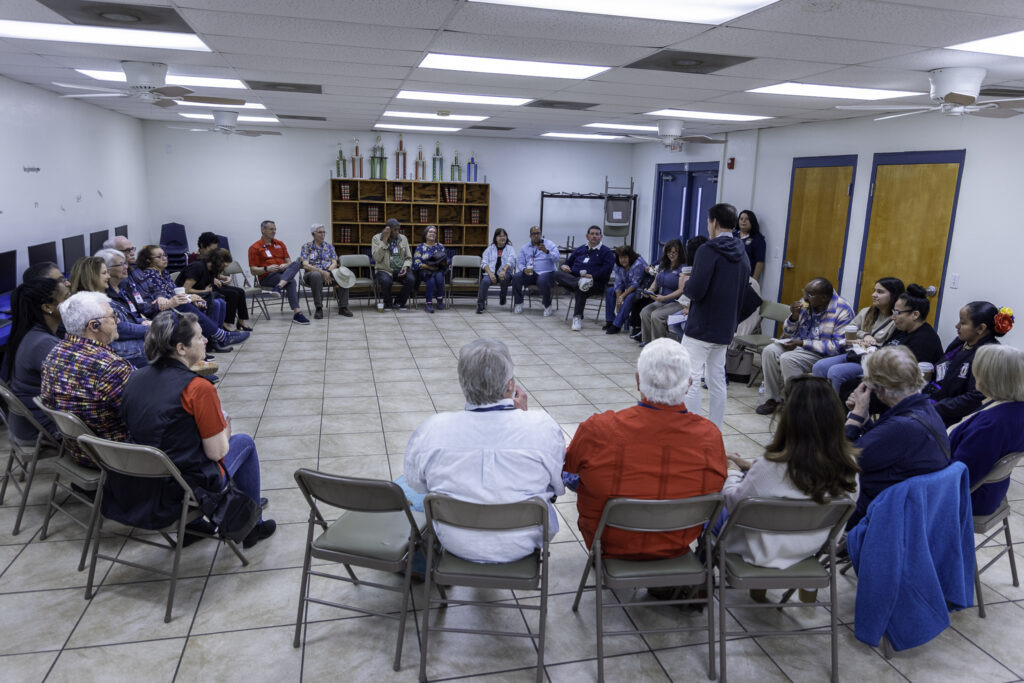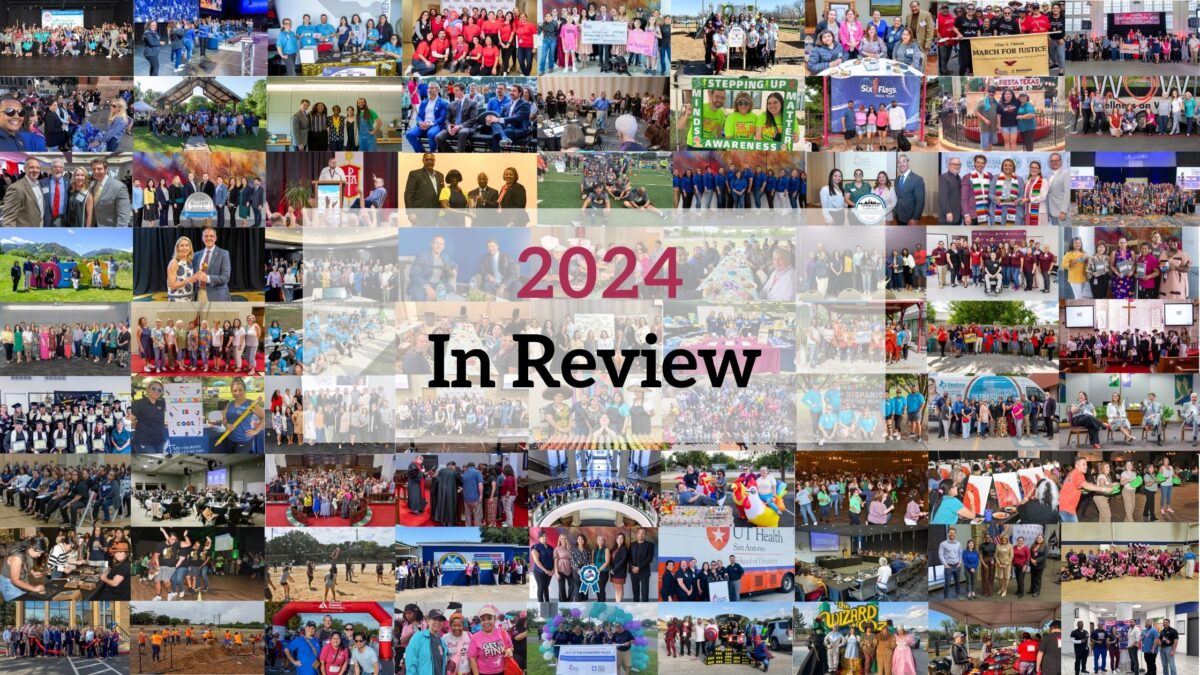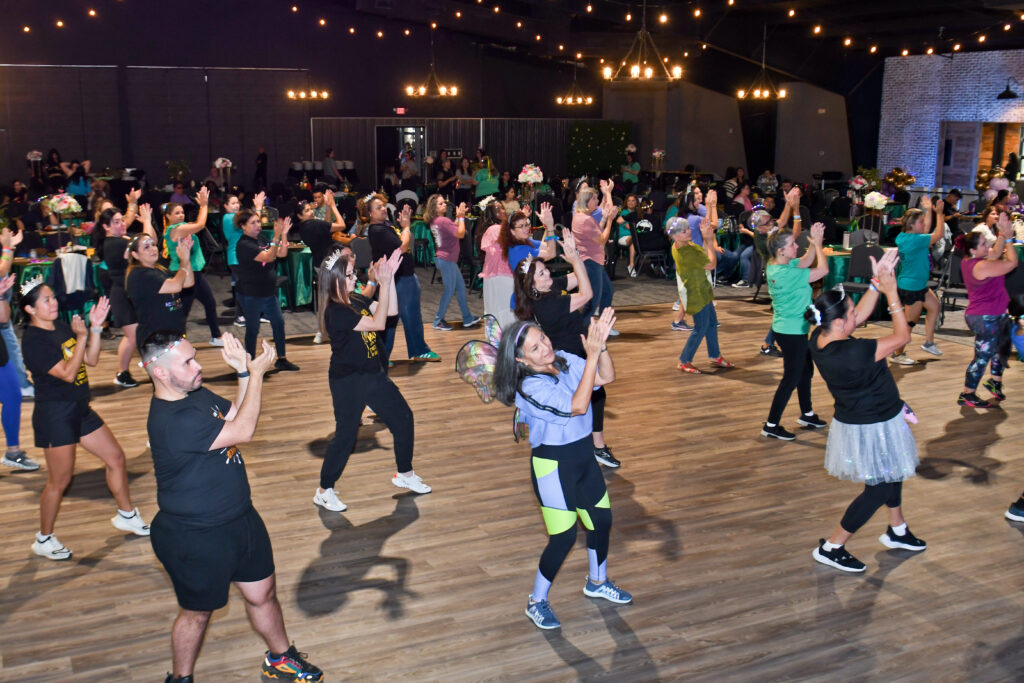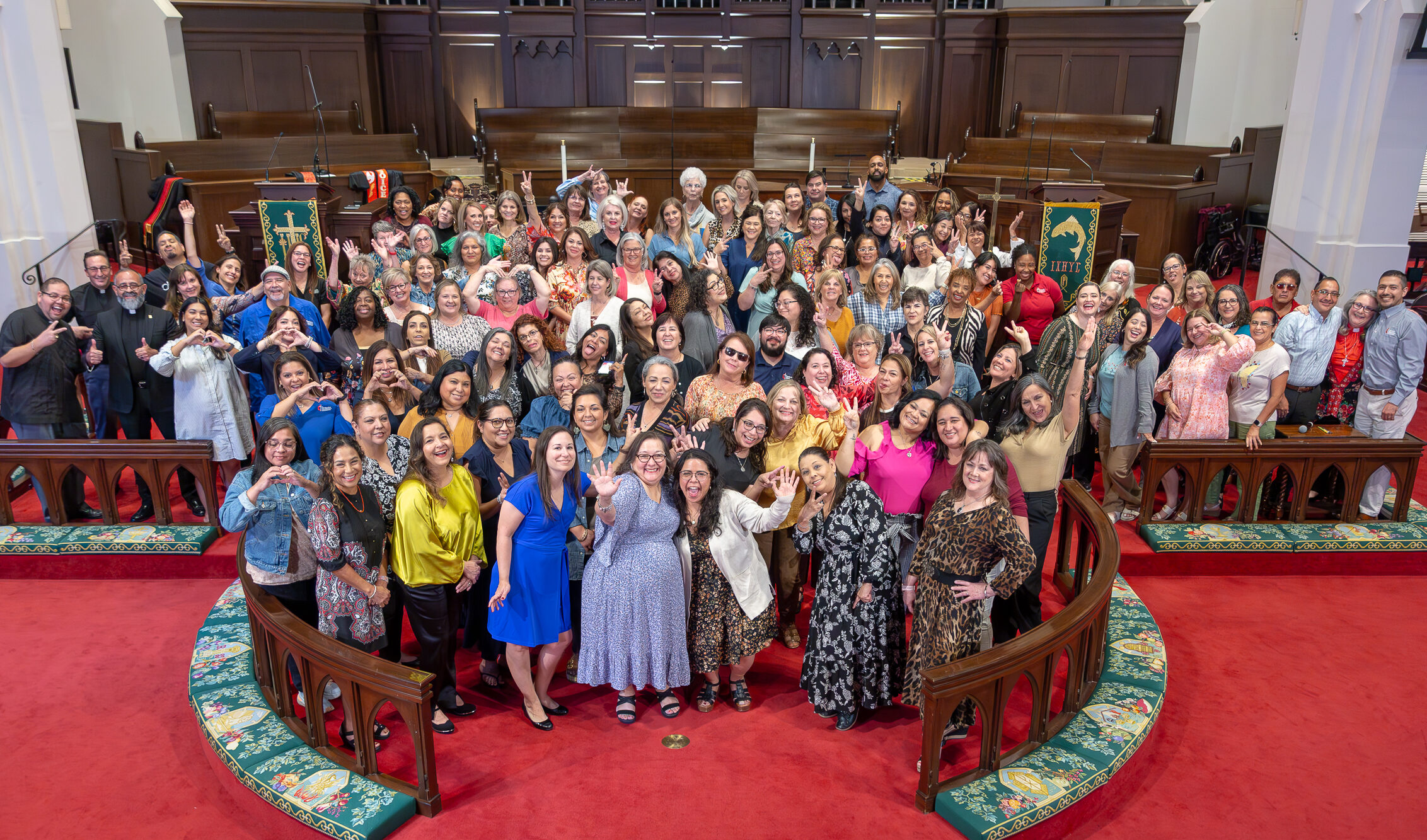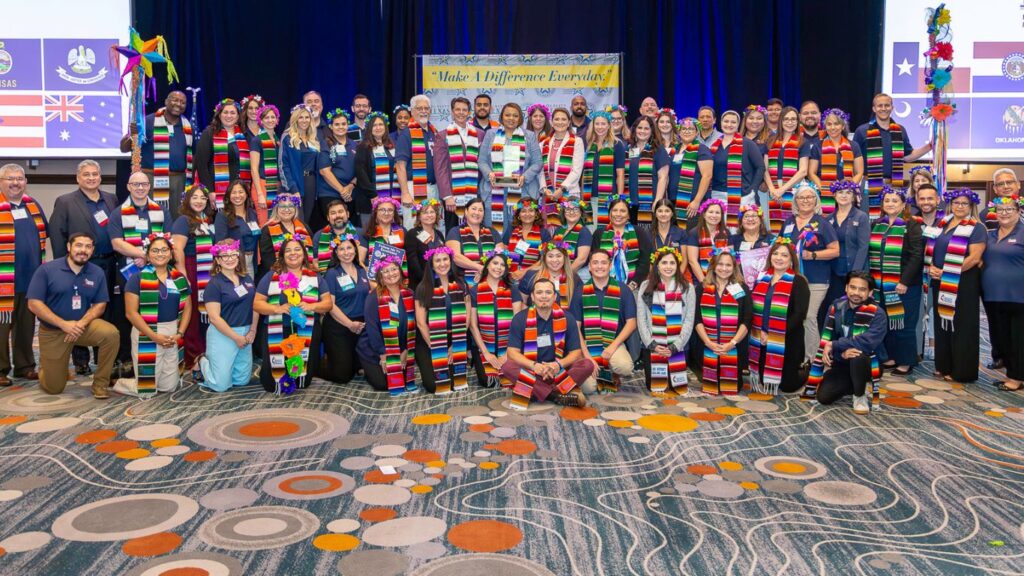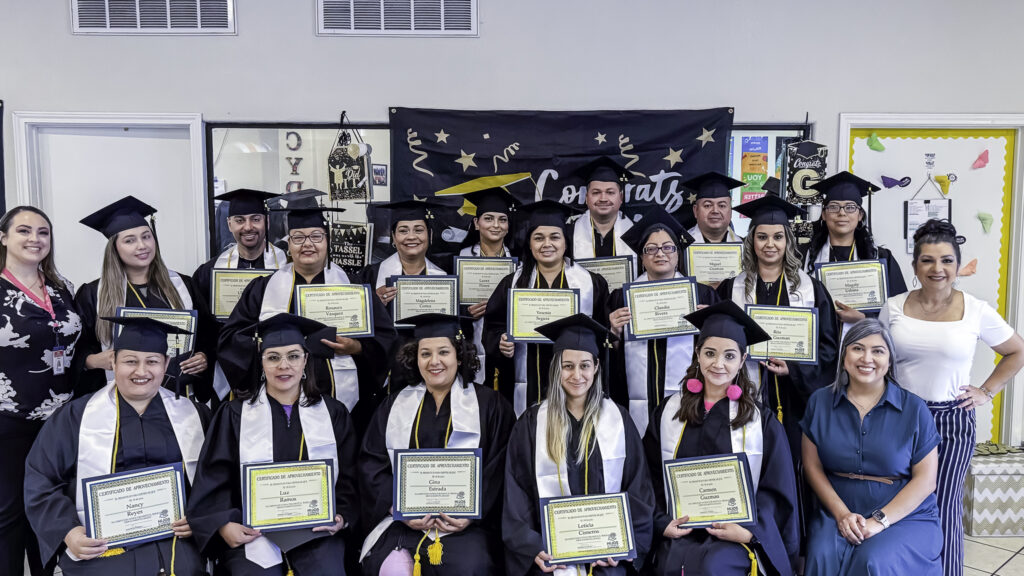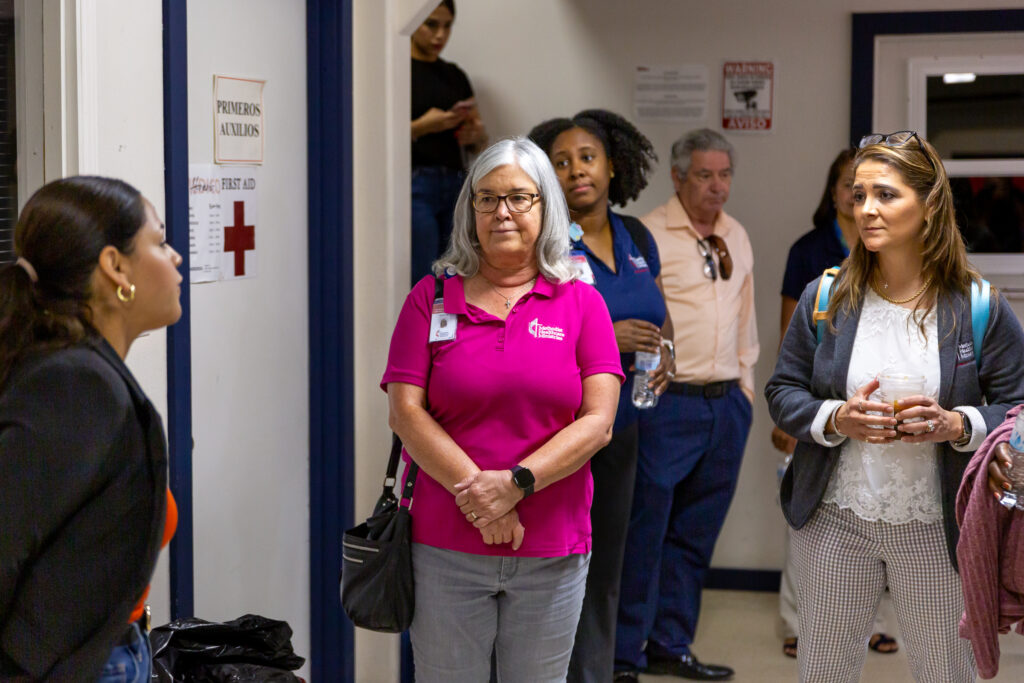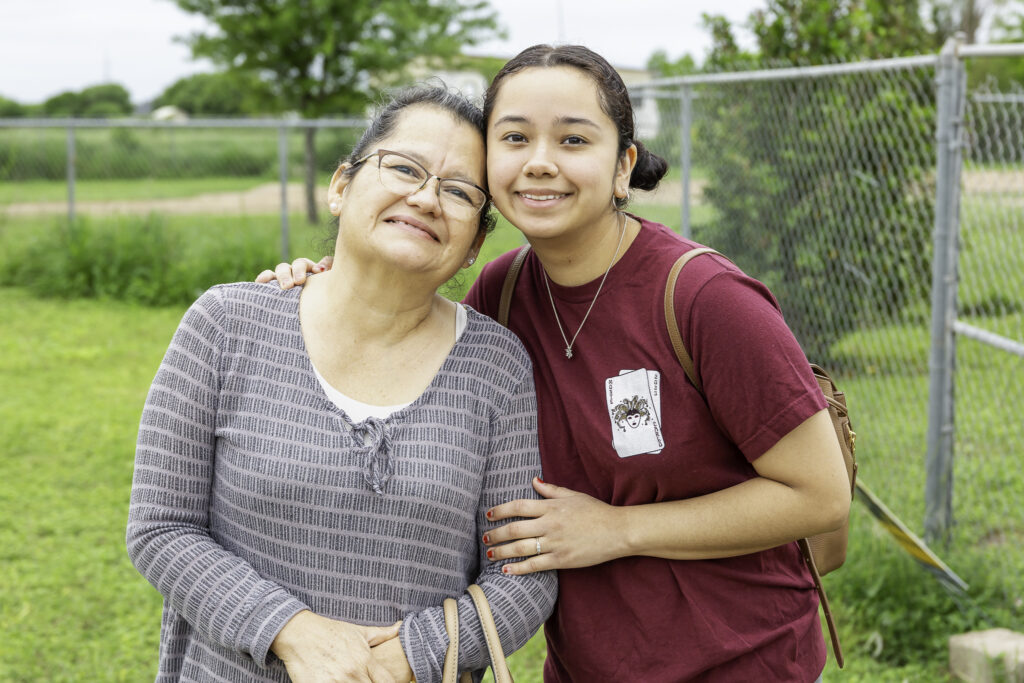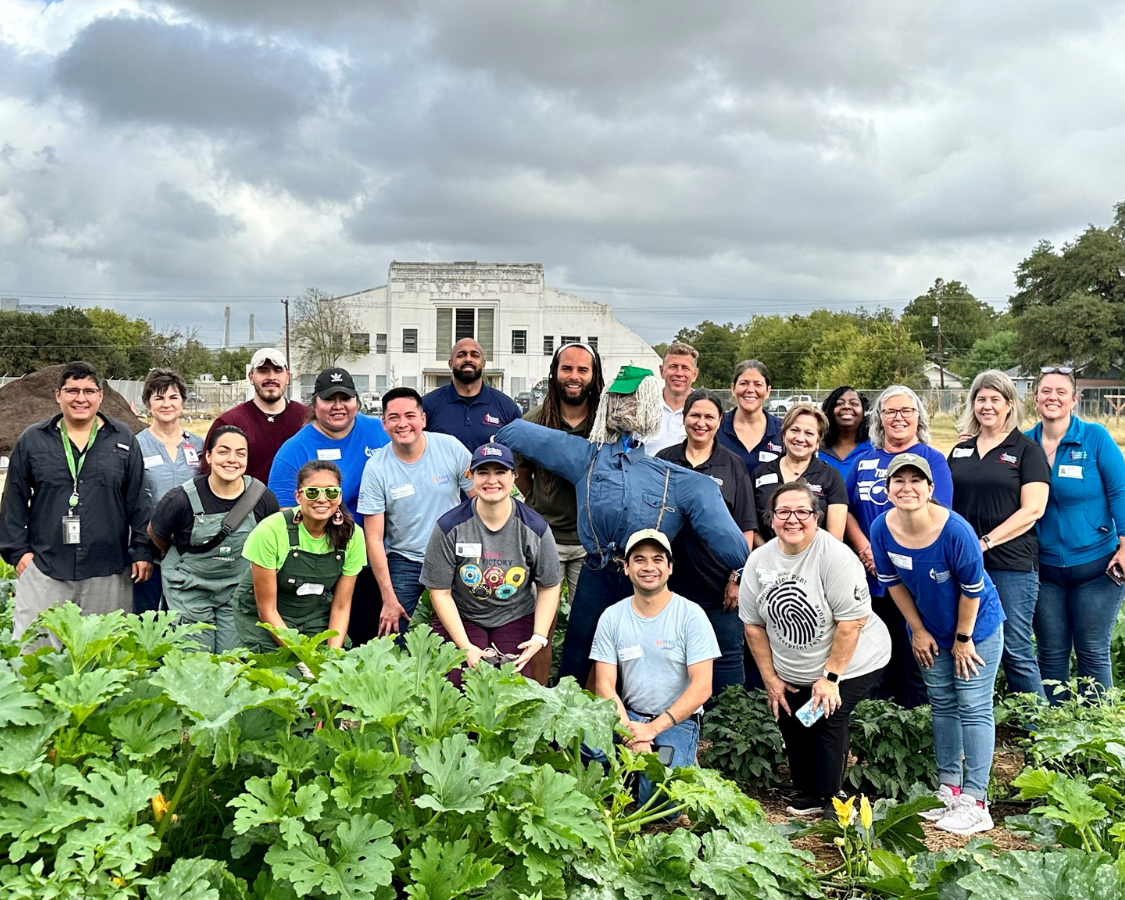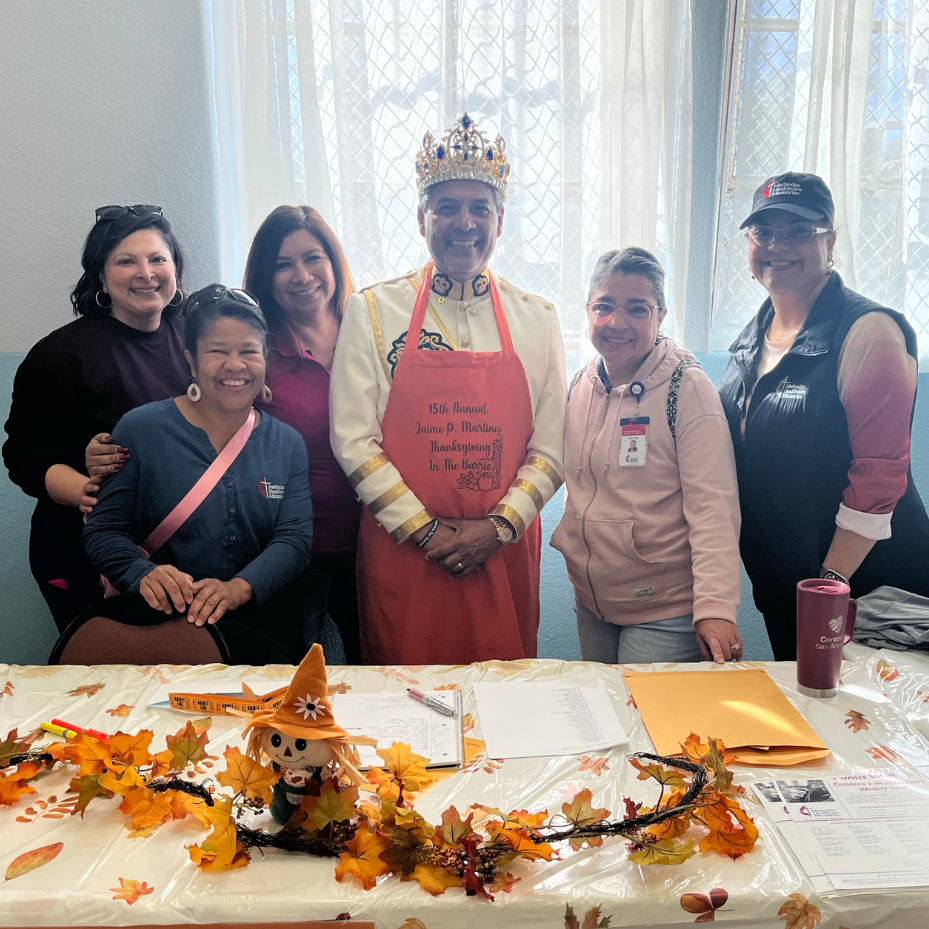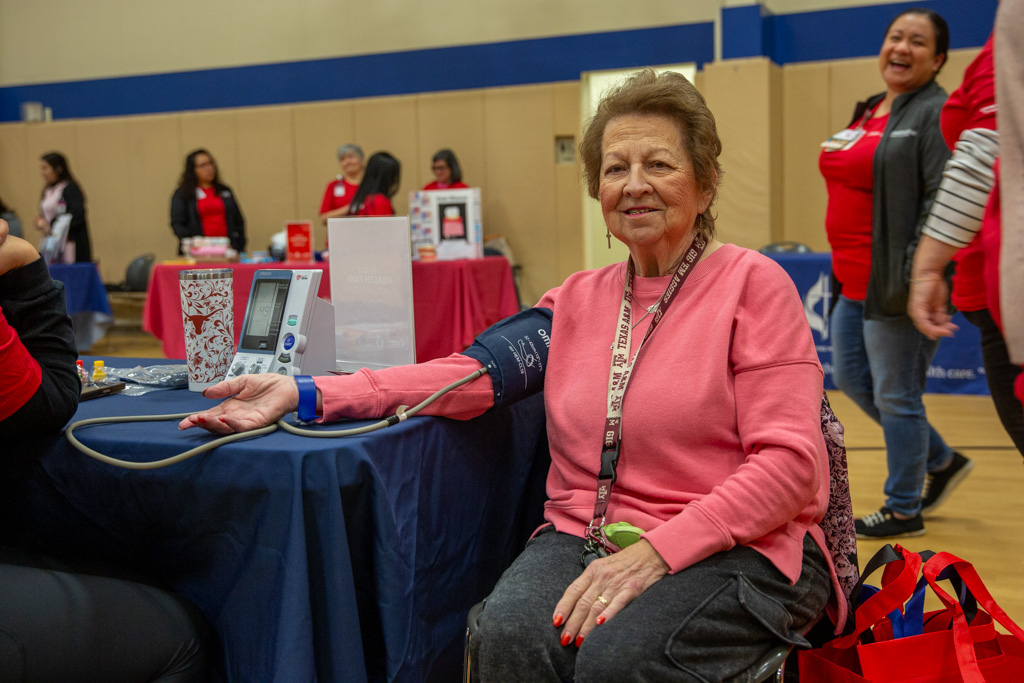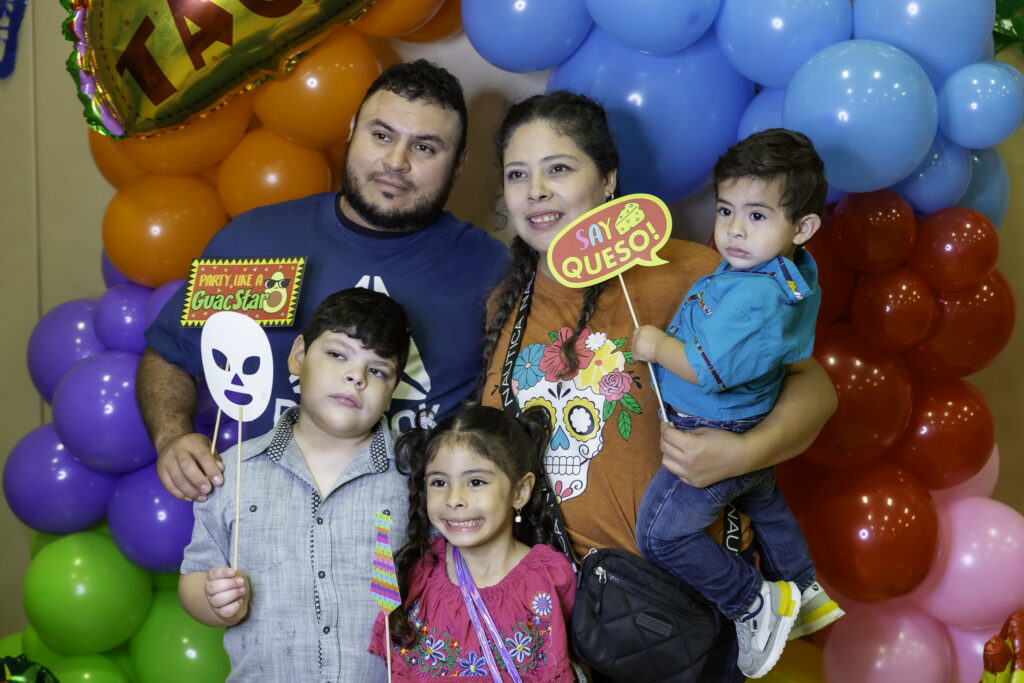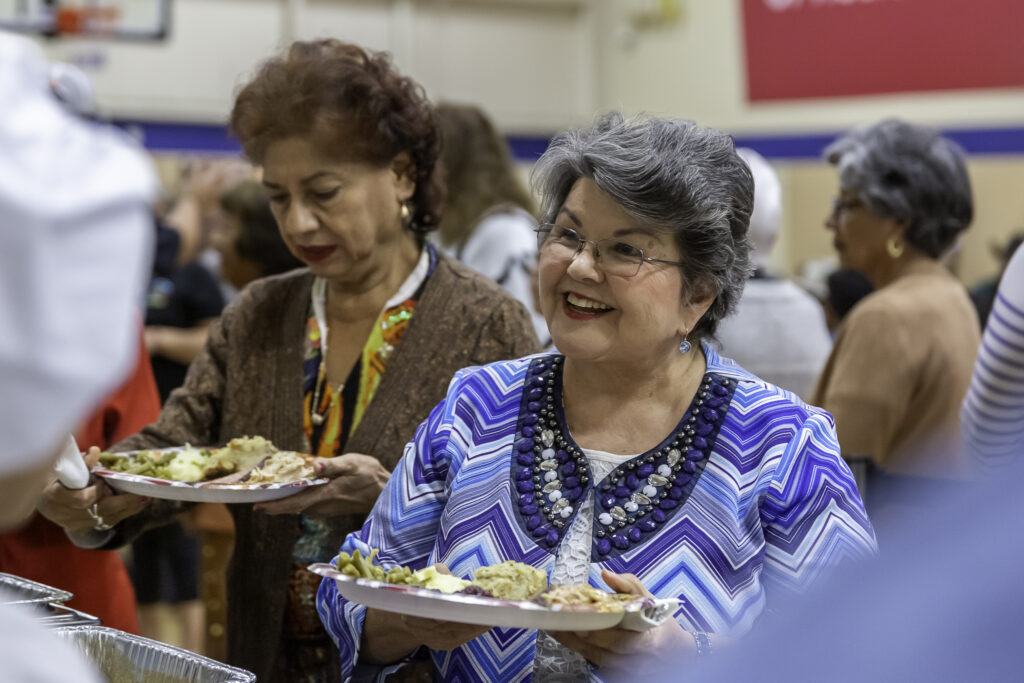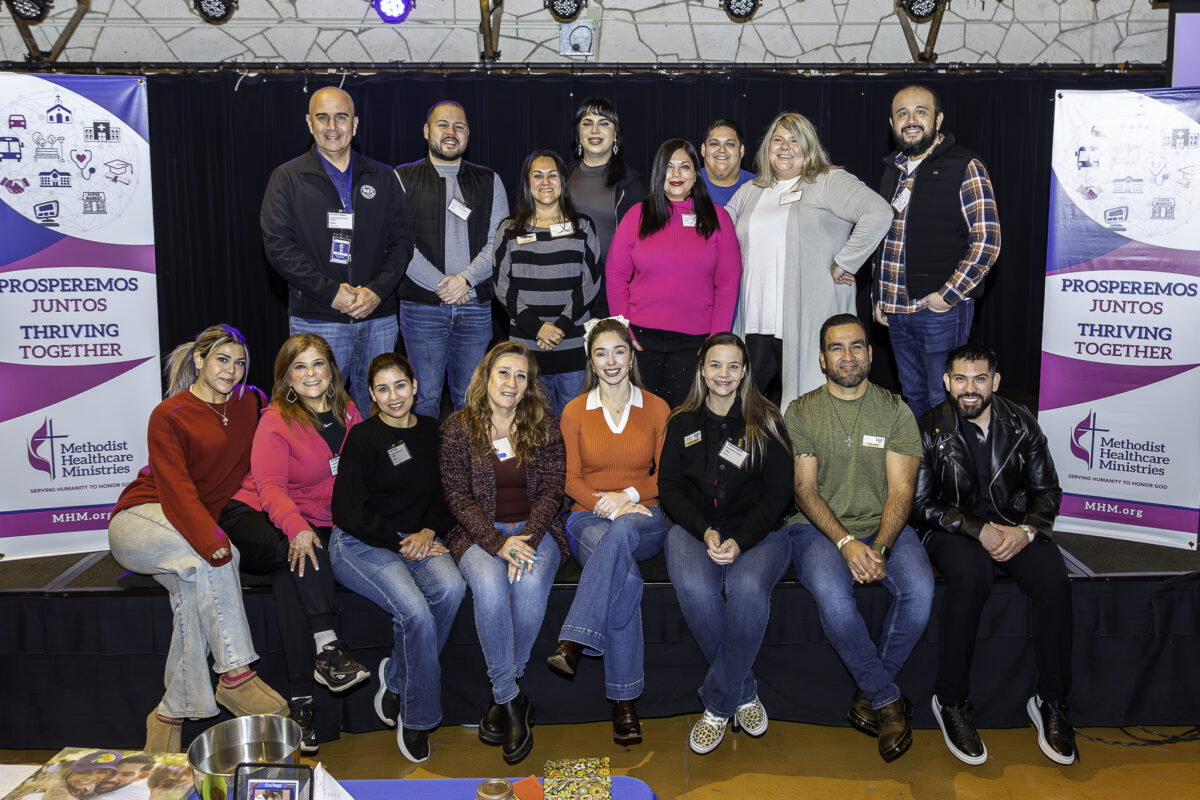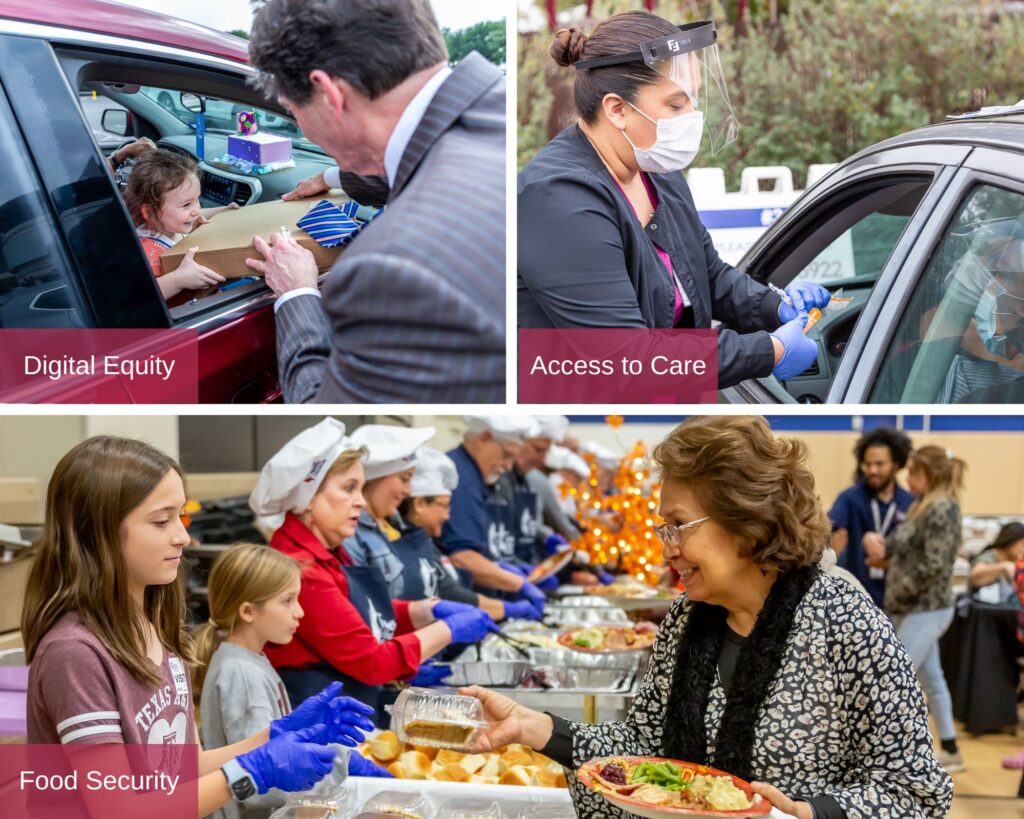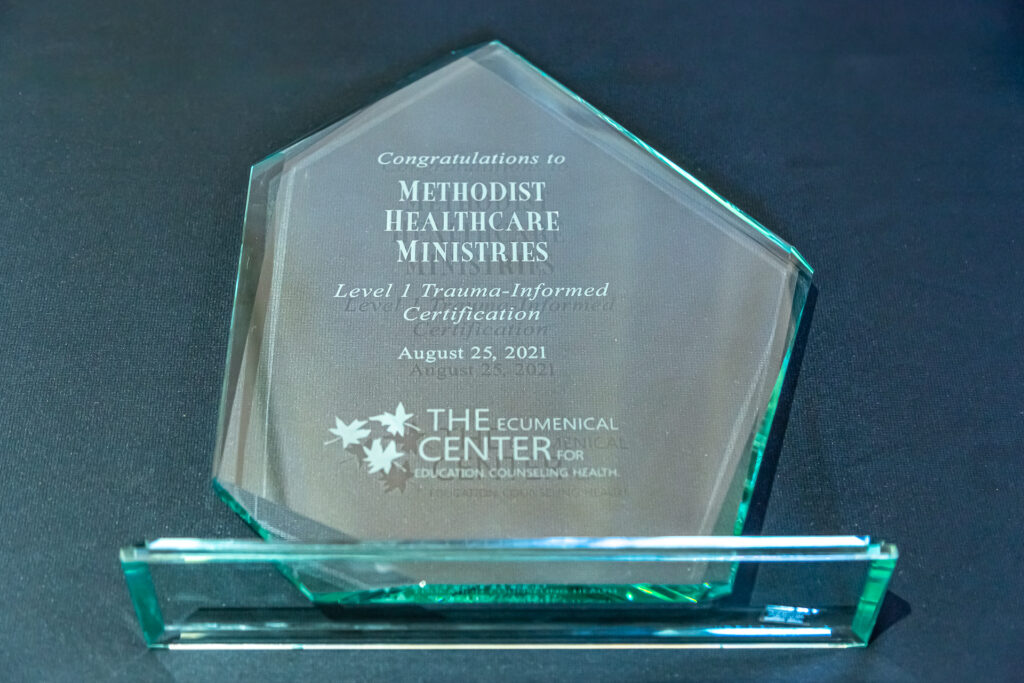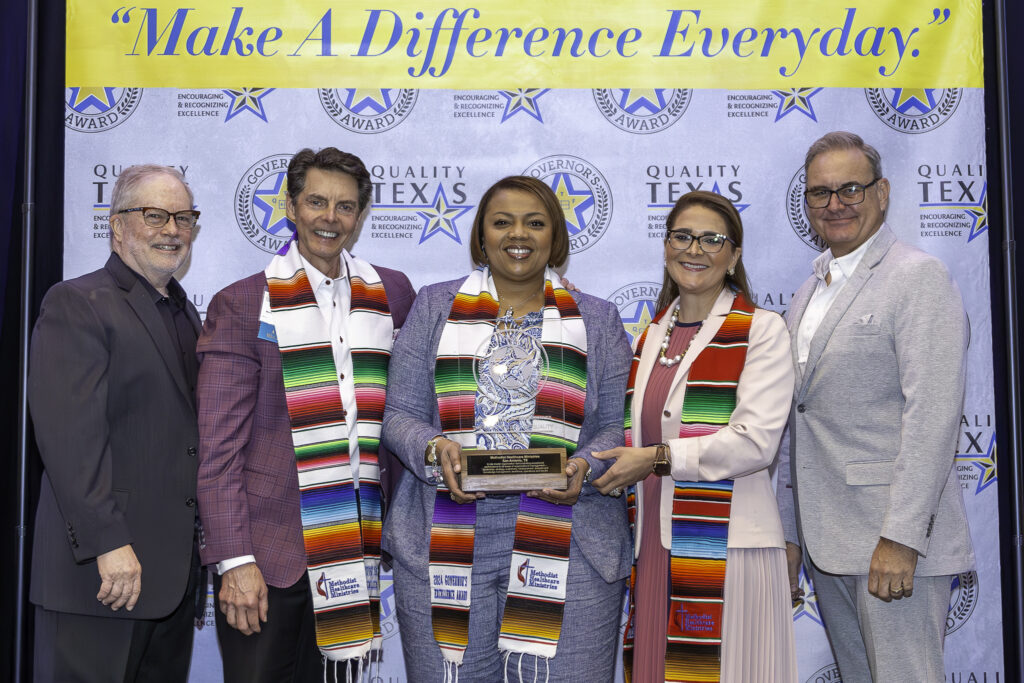(San Antonio, TX, June 20, 2025) – In 2025, Methodist Healthcare Ministries of South Texas, Inc. (MHM) is investing nearly $214 million to advance health equity, strengthen communities and drive systemic change across its 74-county service area. This amount includes funding for direct services, community investments, the development of community partnerships, and advocacy initiatives that create a more level playing field for individuals to thrive. The organization’s 2025 commitment represents an increase of 18 percent from its 2024 investment.
The $213.6 million commitment reflects a strategic focus on advancing health equity, the framework of thought and action guiding the organization’s efforts to address systemic inequities and socio-economic barriers that keep people from living their healthiest lives.
“This investment captures the different ways MHM is advancing health equity across our 74-county service area, so more people and communities have an opportunity to thrive and reach their fullest potential for health and life,” said Jaime Wesolowski, President & CEO of Methodist Healthcare Ministries.
MHM allocates this investment across various key areas of operations, which include grants, strategic operating initiatives, direct services, and administrative costs that support these areas. This allocation ensures the organization delivers on its mission, vision, and strategy effectively. To ensure its investment has the highest level of community impact, MHM has consistently kept its administrative expenses below 15%, which is required to receive the highest possible score from Charity Navigator for analysis.
Grantmaking:
For 2025, MHM has apportioned $62.5 million to over 185 nonprofit organizations and municipalities. This funding includes $35.6 million in new grants awarded in 2025 through a new open grant cycle MHM initiated in 2024. MHM has made a commitment to support thriving people and places, including supporting organizations that address vital conditions, or the properties and conditions across places that everyone needs to reach their full potential for health and life.
MHM aims to help create and sustain healthy communities by supporting grant recipients addressing one of the following priority areas: access to care, mental and behavioral health; digital equity; food security; housing; education and workforce development. MHM’s grantmaking strives to deepen collaborative efforts, incentivize quality health outcomes, leverage and strengthen health care delivery systems, and promote sustainable systems change. Twenty percent of the grantees this year are first-time recipients.
An example of MHM’s support for its grantees is evidenced by its support of Alpha Home and Prosumers International, two nonprofit organizations each focused on providing mental and behavioral health care services to patient populations in need of support.
Alpha Home, a nonprofit organization based in San Antonio providing spiritually-based drug and alcohol treatment services and support to individuals, has been an MHM grantee since 2023. This year, they received $500 thousand to help renovate a 25,000 sq. ft living facility to deliver rehabilitation treatment and case management services for its clients.
“Recovery should never be out of reach,” said Bill Bailey, President and CEO of Cenikor. “With Alpha Home joining the Cenikor family and support from the Methodist Healthcare Ministries grant, we are taking a bold step to expand from 36 to 80 beds with a new facility. We will also have residential services for men and woman. This strengthens our continuum of care in Bexar County and helps more individuals and families thrive.”
Prosumers International is a first-time grantee, receiving $70,000 in 2025 to expand its Peer Run Warmline, to provide ongoing training for peer support specialists, and to continue outreach efforts that can increase usage in South Texas. “Because of the MHM grant, we have been able to keep our program in McAllen up and running and we are working to expand the bilingual Peer Run Warmline in collaboration with Hope Family Health Center, an MHM grant recipient from a previous cycle,” said Anna H. Gray, Executive Director of Prosumers International. “It is hard to express in words the impact MHM is having for Prosumers International.”
Strategic Initiatives:
In addition to the annual funding provided by MHM’s Community Investments team to grantees, MHM has allocated nearly $27 million toward strategic initiatives that amplify its overall strategic goals of removing systemic barriers to well-being and improving community-level conditions across its service area.
These include previously announced initiatives that continue into 2025, such as the South Texas Safe Water Project, the San Antonio GOALS Initiative, the American Cancer Society Methodist Healthcare Ministries Hope Lodge, and the Community Health Accelerator launched with VelocityTX, among others. Each initiative seeks to address vital conditions and root causes of poverty and health inequities that impact the health and well-being of people and communities across Texas. Together with new initiatives to be announced later in 2025 that address food security, economic mobility, rural health and digital equity, these efforts represent MHM’s continued efforts to broaden the definition of health care to address the social and systemic factors that impact individual and community health.
Direct Services
Creating access to care through the provision of clinical services has always been key to the organization’s mission. MHM operates two San Antonio-based primary health care clinics (Wesley Health & Wellness Center and Dixon Health & Wellness Center) and one school-based health center (George Ricks School-Based Health Center at Schertz Elementary). The clinics address the needs of low-income families and the uninsured by providing services at no cost or on a sliding fee scale. The health care services MHM provides are a cornerstone of its charitable purpose of creating access to care.
Additionally, MHM offers health care services and programs throughout its 74-county service area including community counseling services, community health worker program, Get FIT prevention program, parenting support groups and care coordination, and referrals through its Wesley Nurse program.
Since inception, Methodist Healthcare Ministries has provided more than $1.66 billion in health care services through its clinical programs, as well as through partnerships, and is one of the largest private funding sources for community health care to low-income families and the uninsured in South Texas.
###
About Methodist Healthcare Ministries of South Texas, Inc.
Methodist Healthcare Ministries broadens the definition of health care by providing low-cost clinical care for the uninsured and by supporting community-led efforts that improve living conditions that cause people to be sick in the first place. We use our earnings as co-owners of Methodist Healthcare to ensure that people who are economically disadvantaged and uninsured can live their healthiest lives. We do this by advocating for, investing in, and providing access to quality clinical care and addressing factors that affect health—including economic mobility, supportive relationships, food security, broadband access, and safe neighborhoods. Ultimately, we fulfill our mission of “Serving Humanity to Honor God” by advancing health equity so that more resilient individuals & families living in the 74 counties we serve can thrive.
Methodist Healthcare Ministries invierte $214 millones para
ampliar la definición de lo que significa la atención sanitaria en Texas
(San Antonio, TX, 20 de junio de 2025) – En 2025, Methodist Healthcare Ministries of South Texas, Inc. (MHM) invertirá casi $214 millones para promover la equidad en la salud, fortalecer las comunidades e impulsar un cambio sistémico en los 74 condados en los que presta sus servicios. Esta cantidad incluye la financiación de servicios directos, inversiones en la comunidad, el desarrollo de colaboraciones comunitarias e iniciativas de apoyo a la comunidad que crean condiciones más equitativas para que las personas puedan prosperar. El compromiso de la organización para 2025 representa un aumento del 18% con respecto a su inversión de 2024.
El compromiso de $213.6 millones refleja un enfoque estratégico en el avance de la equidad en la salud, el marco de pensamiento y acción que guía los esfuerzos de la organización para abordar las inequidades sistémicas y las barreras socioeconómicas que impiden a las personas llevar una vida más saludable.
“Esta inversión refleja las diferentes formas en que MHM está promoviendo la equidad en la salud en los 74 condados en los que prestamos servicio, para que más personas y comunidades tengan la oportunidad de prosperar y alcanzar su máximo potencial en materia de salud y vida”, afirmó Jaime Wesolowski, presidente y director ejecutivo de Methodist Healthcare Ministries.
MHM destina esta inversión a diversas áreas clave de sus operaciones, entre las que se incluyen subvenciones, iniciativas operativas estratégicas, servicios directos y gastos administrativos que respaldan estas áreas. Esta asignación garantiza que la organización cumpla su misión, visión y estrategia de manera eficaz. Para garantizar que su inversión tenga el mayor impacto posible en la comunidad, MHM ha mantenido constantemente sus gastos administrativos por debajo del 15%, lo que es necesario para obtener la máxima puntuación posible en el análisis de Charity Navigator.
Concesión de subvenciones:
Para 2025, MHM ha asignado $62.5 millones a más de 185 organizaciones sin fines de lucro y municipios. Esta financiación incluye $35.6 millones en nuevas subvenciones concedidas en 2025 a través de un nuevo ciclo de subvenciones abiertas que MHM inició en 2024. MHM se ha comprometido a apoyar a las personas y los lugares prósperos, lo que incluye el apoyo a organizaciones que se ocupan de condiciones vitales, o de las propiedades y condiciones de los lugares que todos necesitan para alcanzar su pleno potencial en materia de salud y vida.
MHM tiene como objetivo ayudar a crear y mantener comunidades saludables mediante el apoyo a los beneficiarios de las subvenciones que abordan una de las siguientes áreas prioritarias: acceso a la salud, salud mental y conductual; equidad digital; seguridad alimentaria; vivienda; educación y desarrollo de la fuerza laboral. Las subvenciones de MHMse esfuerzan por profundizar los esfuerzos de colaboración, incentivar resultados de salud de calidad, aprovechar y fortalecer los sistemas de prestación de atención médica y promover un cambio sostenible en los sistemas. El veinte por ciento de los beneficiarios de este año son receptores por primera vez.
Un ejemplo del apoyo que MHM brinda a sus beneficiarios es el respaldo que ofrece a Alpha Home y Prosumers International, dos organizaciones sin fines de lucro dedicadas a proporcionar servicios de salud mental y conductual a pacientes que necesitan apoyo.
Alpha Home, una organización sin ánimo de lucro con sede en San Antonio que ofrece servicios de tratamiento de la adicción a las drogas y el alcohol basados en la espiritualidad, así como apoyo a las personas, es beneficiaria de MHMdesde 2023. Este año, ha recibido $500,000 para ayudar a renovar unas instalaciones de 2300 pies cuadrados destinadas a ofrecer tratamiento de rehabilitación y servicios de administración de casos a sus clientes.
“La recuperación nunca debe estar fuera del alcance de nadie”, afirmó Bill Bailey, presidente y director ejecutivo de Cenikor. “Con la incorporación de Alpha Home a la familia Cenikor y el apoyo de la subvención de Methodist Healthcare Ministries, estamos dando un paso audaz para ampliar de 36 a 80 camas con una nueva instalación. También ofreceremos servicios residenciales para hombres y mujeres. Esto refuerza nuestra continuidad asistencial en el condado de Bexar y ayuda a más personas y familias a prosperar”
Prosumers International es una organización que recibe una subvención por primera vez, con $70,000 en 2025 para ampliar su línea de ayuda Peer Run Warmline, para proporcionar formación continua a los especialistas que apoyan a personas con necesidades similares y continuar con las iniciativas de alcance que pueden aumentar su uso en el sur de Texas. “Gracias a la subvención de MHM, hemos podido mantener en funcionamiento nuestro programa en McAllen y estamos trabajando para ampliar la línea de ayuda Peer Run Warmline bilingüe en colaboración con Hope Family Health Center, beneficiario de una subvención de MHM en un ciclo anterior,” afirmó Anna H. Gray, directora ejecutiva de Prosumers International. “Es difícil expresar con palabras el impacto que MHM está teniendo en Prosumers International.”
Iniciativas estratégicas:
Además de la financiación anual que el equipo de Inversiones Comunitarias de MHM proporciona a los beneficiarios, MHM ha destinado casi $27 millones a iniciativas estratégicas que amplían sus objetivos estratégicos generales de eliminar las barreras sistémicas al bienestar y mejorar las condiciones a nivel comunitario en toda su área de servicio.
Entre ellas se incluyen iniciativas anunciadas anteriormente que continuarán en 2025, como el Proyecto de Agua Potable del Sur de Texas, la Iniciativa GOALS de San Antonio, el Hope Lodge de Methodist Healthcare Ministries de la Sociedad Americana del Cáncer, y el Community Health Accelerator lanzado junto con VelocityTX, entre otras. Cada iniciativa busca abordar las condiciones vitales y las causas fundamentales de la pobreza y las inequidades en materia de salud que afectan a la salud y el bienestar de las personas y las comunidades de Texas. Junto con las nuevas iniciativas que se anunciarán a finales de 2025 y que abordarán la seguridad alimentaria, la movilidad económica, la salud rural y equidad digital, estos esfuerzos representan los continuos esfuerzos de MHM por ampliar la definición de atención sanitaria para abordar los factores sociales y sistémicos que afectan a la salud individual y comunitaria.
Servicios directos
Crear acceso a la atención médica mediante la prestación de servicios clínicos siempre ha sido clave para la misión de la organización. MHM opera dos clínicas de atención médica primaria en San Antonio (Wesley Health & Wellness Center y Dixon Health & Wellness Center) y un centro de salud escolar (George Ricks School-Based Health Center en Schertz Elementary). Las clínicas atienden las necesidades de las familias con bajos ingresos y sin seguro médico, prestando servicios gratuitos o con tarifas variables en función de los ingresos. Los servicios de atención médica que presta MHM son la base de su objetivo benéfico de facilitar el acceso a la atención médica.
Además, MHM ofrece servicios y programas de atención médica en toda su área de servicio, que abarca 74 condados, incluyendo servicios de consejería a la comunidad, un programa de promotores de la salud comunitarios, el programa de prevención Get FIT, grupos de apoyo para padres y coordinación de la atención, y referencias médicas a través de su programa Wesley Nurse.
Desde su creación, Methodist Healthcare Ministries ha proporcionado más de $1.66 mil millones en servicios de atención médica a través de sus programas clínicos, así como a través de asociaciones, y es una de las mayores fuentes de financiación privada para la atención médica comunitaria de familias con bajos ingresos y personas sin seguro médico en el sur de Texas.
###
Acerca de Methodist Healthcare Ministries of South Texas, Inc.
Methodist Healthcare Ministries amplía la definición de lo que significa la atención médica al brindar atención clínica de bajo costo a quienes no tienen seguro y al apoyar los esfuerzos dirigidos por la comunidad que mejoran las condiciones de vida que causan que las personas se enfermen en primer lugar. Utilizamos nuestras ganancias como copropietarios de Methodist Healthcare para garantizar que las personas económicamente desfavorecidas y sin seguro puedan vivir una vida más saludable. Lo hacemos defendiendo, invirtiendo y brindando acceso a atención clínica de calidad y abordando los factores que afectan la salud, incluida la movilidad económica, las relaciones de apoyo, la seguridad alimentaria, el acceso a banda ancha y los vecindarios seguros. En última instancia, cumplimos nuestra misión de “Servir a la humanidad para honrar a Dios” promoviendo la equidad en salud para que las personas y familias más resilientes que viven en los 74 condados a los que servimos puedan prosperar.



